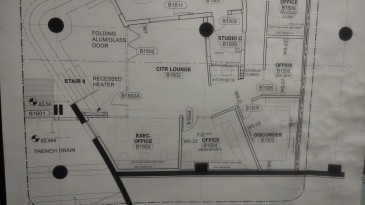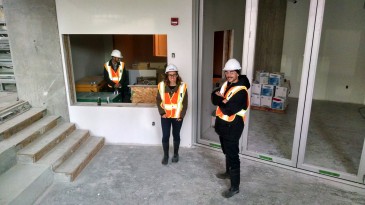
In the age of the podcast and digital music downloads it is almost hard to imagine the passion for radio broadcasting that pulled me and a school chum like a magnet through the doors of CiTR in the summer of 1981. Getting course credits in order to graduate might have been a higher priority in life, but back then getting behind a microphone and playing music that you loved seemed to matter just as much.
35 years later I am astounded by the influence that decision to join the UBC campus radio station has had on my life, my relationships, and my career. I had been a radio fan boy since the time when top 40 stations lit up my youth during long summers. Then came the heyday of album-oriented FM stations when deep-voiced deejays played deep album tracks.
A series of mainstream music artists emerged in Vancouver thanks to the success of Heart, recorded locally at the legendary Mushroom Records studio on West 6th Avenue. But a defiant and determined hardcore sound exploded here soon after like a crack in the Earth’s crust. CiTR was the first radio station to truly embrace the artists and the attitude brought on by music’s new wave.
While other campus stations aspired to sound like their mainstream counterparts, CiTR was always the outlier. This was partly due to the station itself being tucked away in a remote set of rooms on the second floor of the SUB in the outer reaches of West Point Grey. When we showed up at the station for our first interview by then-Station President Jeff Kearney, my pal Dave Jamieson and I feared we might be too button-down when PiL t-shirts ruled the joint.

Nonetheless, we got our shift and kept a show going through the next couple of years, including a summertime weekend slot memorable mostly for the on-air hangovers. During that period two significant milestones happened for the station: getting CRTC approval for a radio signal, and the launch of the Discorder monthly newspaper.
I had long graduated from UBC when I returned to the station in 1988 to pitch myself as a Discorder contributor. For some reason writing under a nom de plume seemed like a cool idea, which is why my first published story “The Laurie Partridge Diaries” had The Man Sherbet as a byline. It was an unexpected delight when a photo I took of the Cobalt Hotel made a collection of Discorder’s best covers years later.
Of all the profound relationships and fond memories CiTR brings, none rivals the fact that I later married a fellow radio station alumnus. Having so many CiTR connections in common undoubtedly helped in my first encounter with Stacey.

CiTR’s prominent place in the new SUB is a big change from its former bunker-like location. But Radio Hell will live on, driven by the same passion that has led so many of us through the doors over the years.
Mike Klassen is a principal at TCG Public Affairs and a political columnist

